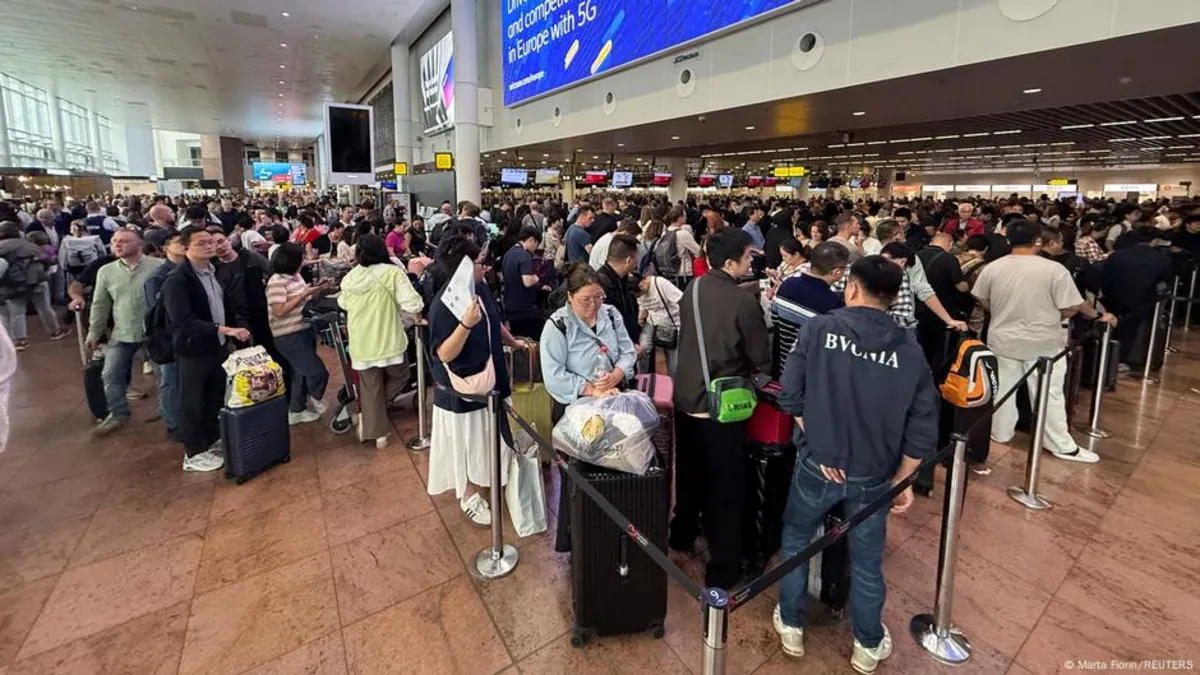
Operations at several major airports across Europe faced significant disruptions on Saturday due to a cyberattack targeting the service provider for check-in and boarding systems. This unfortunate incident resulted in numerous flight delays and cancellations at key airports in London, Berlin, and Brussels.
The cyberattack occurred late Friday night, September 19, impacting the service provider responsible for the check-in and boarding systems at various European airports. According to a statement from Brussels Airport, the attack has had a considerable effect on the flight schedule, leading to unavoidable delays and cancellations. The airport operator confirmed that they are actively working with the service provider to resolve the issue as swiftly as possible.
Airport authorities have advised passengers scheduled to fly on Saturday to verify their travel plans with airlines before proceeding to the airport. This precaution is essential given the scale of the disruption caused by the cyberattack.
Aviation data provider Cirium reported that a total of 29 departures and arrivals have been canceled so far at Heathrow, Berlin, and Brussels airports. On Saturday alone, Heathrow had 651 departures scheduled, while Brussels had 228 and Berlin had 226. The impact of the cyberattack on flight operations is indeed significant.
Collins Aerospace, the affected airport service provider, confirmed to AFP that multiple European airports, including those in Brussels, Berlin, and London (Heathrow), experienced a cyber-related disruption. They acknowledged the issue with their MUSE software, which is used in select airports. The company stated that while the impact on electronic customer check-in and baggage drop systems is notable, it can be managed through manual check-in operations.
In addition to the disruptions at major airports, Heathrow issued a warning about delays caused by a technical issue at a third-party supplier. Berlin's Brandenburg Airport also informed travelers via a banner on its website about the prolonged waiting times at check-in due to the same technical issue. They assured passengers that efforts are underway to find a quick resolution.
Furthermore, Dublin Airport announced that it, along with Cork Airport—Ireland’s second-largest airport—was experiencing a minor impact from the ongoing situation. This incident highlights the interconnectedness of airport operations across Europe, as many facilities rely on shared technology and service providers.
This cyberattack comes on the heels of a recent security breach reported by the airport in St. Petersburg, Russia, where its website was hacked. The increasing frequency of cyberattacks on critical infrastructure raises serious concerns about the security of airport operations and the need for robust cybersecurity measures in the aviation sector.
As the situation develops, passengers are encouraged to stay updated and check with their respective airlines for the latest information regarding flight schedules and potential disruptions.